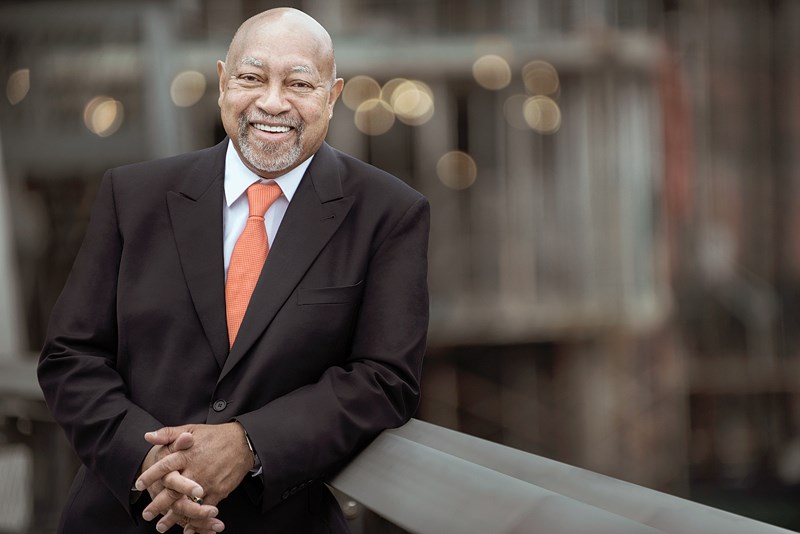Kenny Barron: A Night of Solo Piano, Kay Meek Centre, Sunday, June 25 at 7:30 p.m. (coastaljazz.ca).
Jazz pianist Kenny Barron is in a league of his own.
The Los Angeles Times has referred to him as “one of the top jazz pianists in the world” and Jazz Weekly calls him “The most lyrical piano player of our time.”
He has more than 40 albums under his belt as either a bandleader or co-leader, not to mention appearances as a sideman on hundreds of other recordings.
He’s played with the likes of Dizzy Gillespie, Stan Getz and Charlie Haden, as well as numerous other names synonymous with jazz’s modern era.
But ask Barron himself what he thinks about his numerous accolades, or about his reputation as being possibly the greatest living jazz piano player, and the man coolly shrugs it off.
“It’s not something I really think about. I’m just doing the best I can do. And plus, listening to a lot of the young guys out there sometimes I feel like I’m playing catch-up,” Barron says with a laugh.
He’s modest, but luckily his reputation speaks for itself.
Barron was born in Philadelphia, Pa., in 1943. As a kid, Barron surrounded himself with his older brother’s jazz records and was exposed early on to some of the genre’s most formidable talents, like Dizzy Gillespie, who Barron would later play alongside with.
“In high school I played bass and I studied cello. But it was the piano for me,” he explains.
His older brother, Bill Barron, was a revered saxophone player in his own right who helped his younger brother get his first gig playing in a big band in town. “It was for dancing, but it was a great experience,” he says.
But Barron’s career really took off after he moved from home and hooked up with bebop saxophone legend James Moody.
“When I first came to New York in ’61, I got a gig with James Moody who was working at a club called the Five Spot. And it was through Moody that I got the gig with Dizzy. Dizzy hired me just on Moody’s recommendation. Dizzy never heard me play,” Barron explains. “I’m forever grateful.”
Since those early days, he has produced a constant stream of recordings and performed almost nonstop.
At this point, it would be easier to ask who he hasn’t played with as opposed to who he has.
Case in point: when it’s brought up that famed jazz bassist Ron Carter – a musician who Barron has performed with in the past – will be in town at the same time as Barron for a separate performance at the Vancouver International Jazz Festival, the pianist is unmoved.
“I’m actually going to Japan (on tour) with him in November,” Barron remarks.
For Barron’s Vancouver jazz festival show, he’ll be doing a solo piano performance, a mode of playing that the veteran performer is very comfortable with.
“I won’t plan a set but what I’ll do is I’ll go through a list of songs that I think would work well solo and I’ll choose from them. Probably the day of I’ll choose which songs I want to play from that list,” he says.
Jazz standards. Original compositions. Anything is possible in this format, Barron explains – though he also loves playing with his trio or in a quintet.
“One of the things that happens in terms of the differences between quintet and trio is that with the quintet I may do more writing in terms of arranging – writing for the horns and harmonies and stuff like that. With trio, I may play more standards. Solo I will probably play more standards – and some originals as well,” he says.
In the early 1970s Barron balanced making and performing music with learning about it, eventually earning his degree in music from Empire State College in New York.
From there he joined the faculty at Rutgers University in New Jersey as a music professor, a position he held until 2000.
Barron is complimentary about what the younger generation of jazz musicians is bringing to the genre, helping to move it forward in new and exciting ways.
His only grievance is that sometimes younger players don’t have the same reverence for swing music that his generation did. He’s not ready to call it old-fashioned and he insists he still likes to swing.
But for a career that’s over five decades in the works, pinpointing Barron’s muse or source of inspiration – the thing that propels him forward – is something he has to stop and think about.
“You’re just always searching. Certain kinds of things, certain kinds of harmonies you hear you think, ‘How can I capture this?’ It’s all about trying to find it. That’s really what it’s about,” he says.
Barron has many stories and anecdotes from throughout his career.
One particularly pertinent one involves the band Sphere, a group that Barron used to be a part of.
The band started out in the early 1980s as a jazz ensemble whose purpose was to pay tribute to pianist and jazz composer Thelonious Monk.
At the time, Monk wasn’t in particularly good health and his musical productivity had slowed down considerably.
Barron and the others members in Sphere hoped that recording music in his honour would inspire the musician to get back to playing with the same verve he once did.
The quartet went into the studio to record their debut album, Four in One, on Feb. 17, 1982.
By chance, that very same day Monk died, unbeknownst to the members in Sphere.
But the band persisted. They would go on to record six more albums over the next 15 years.
Whether honouring the past with his music or pushing boundaries, Barron always just keeps pushing forward.
“I’m happy with where I am, but there’s more to learn and that’s what the young guys show me: there’s more to learn all the time,” he says.



